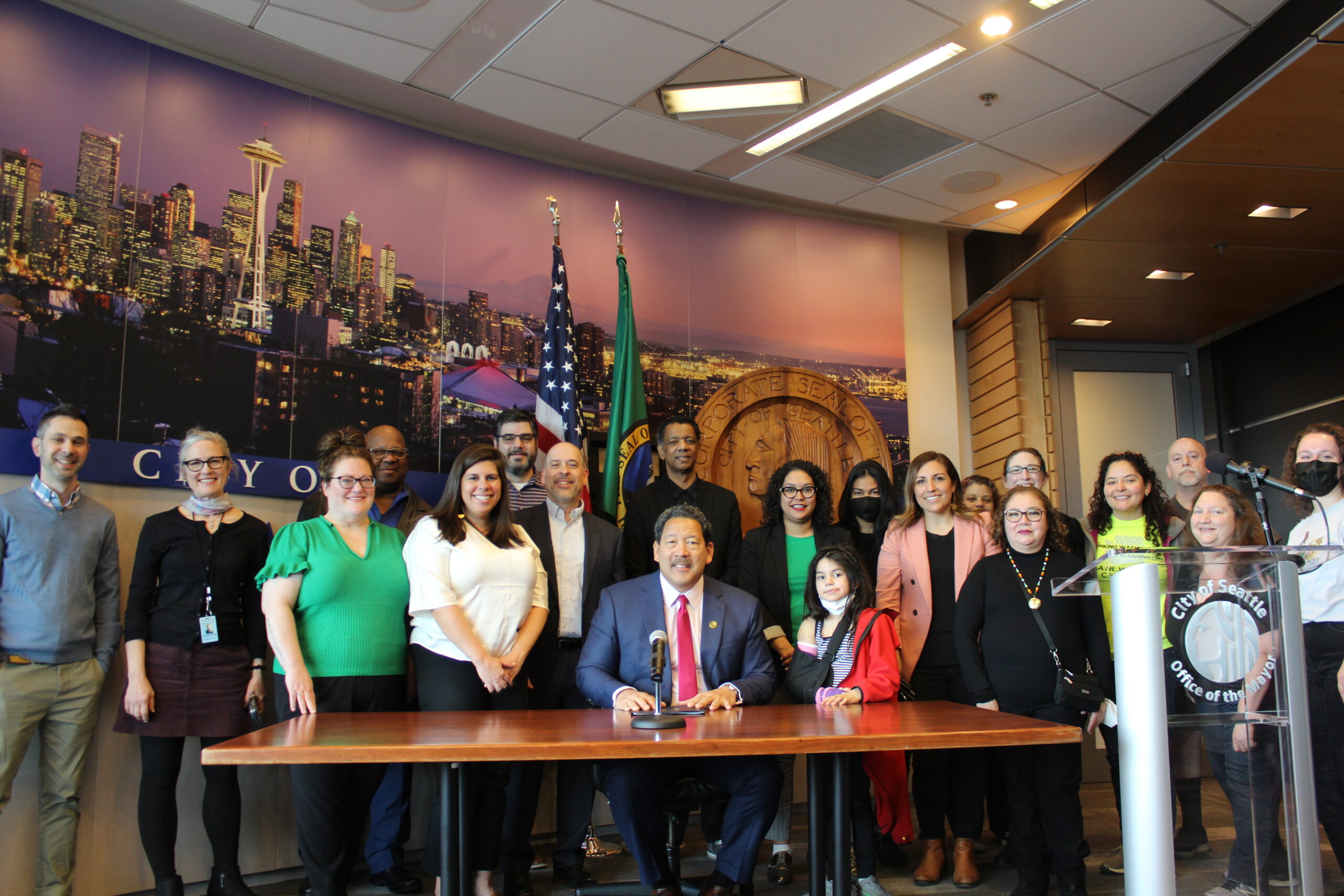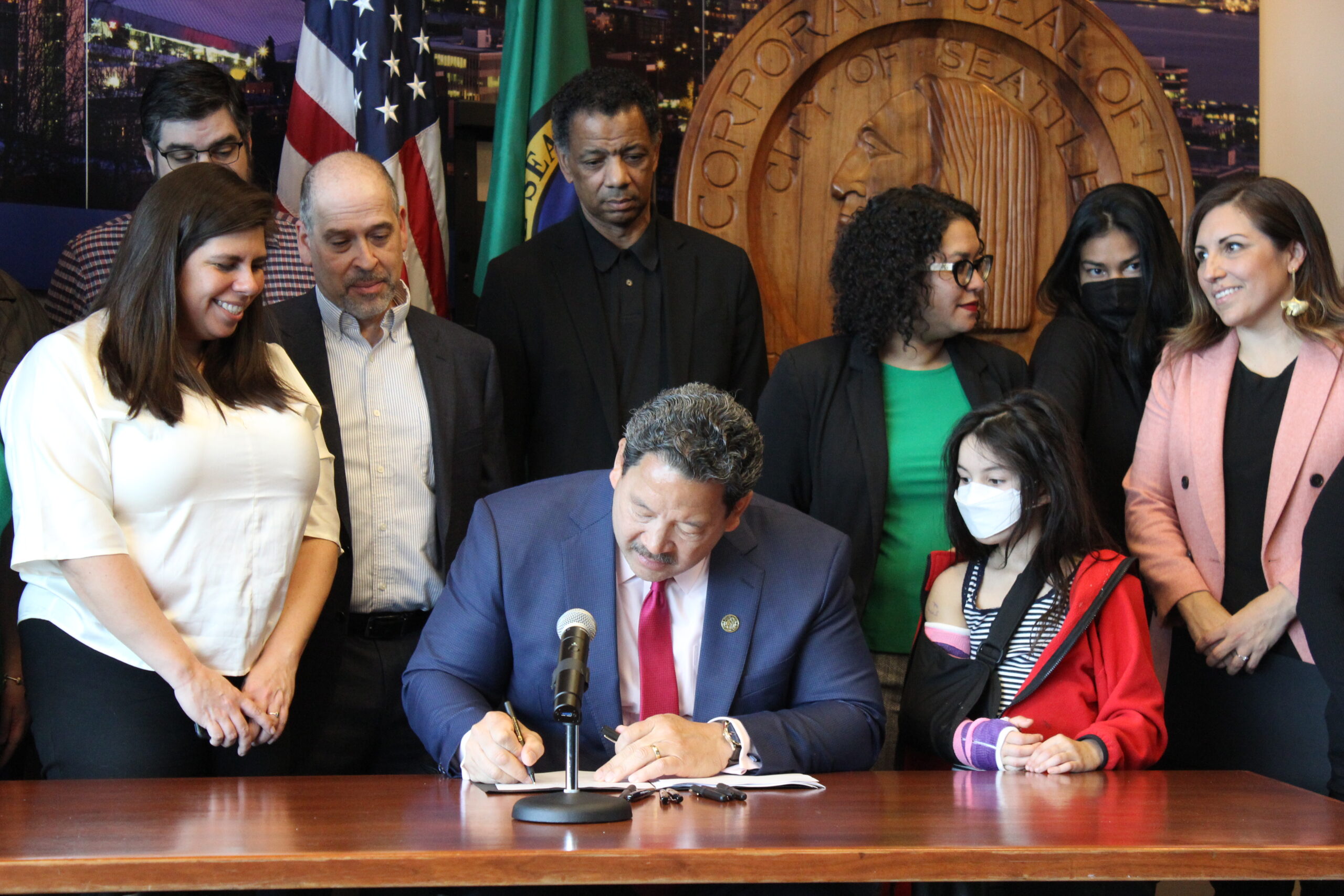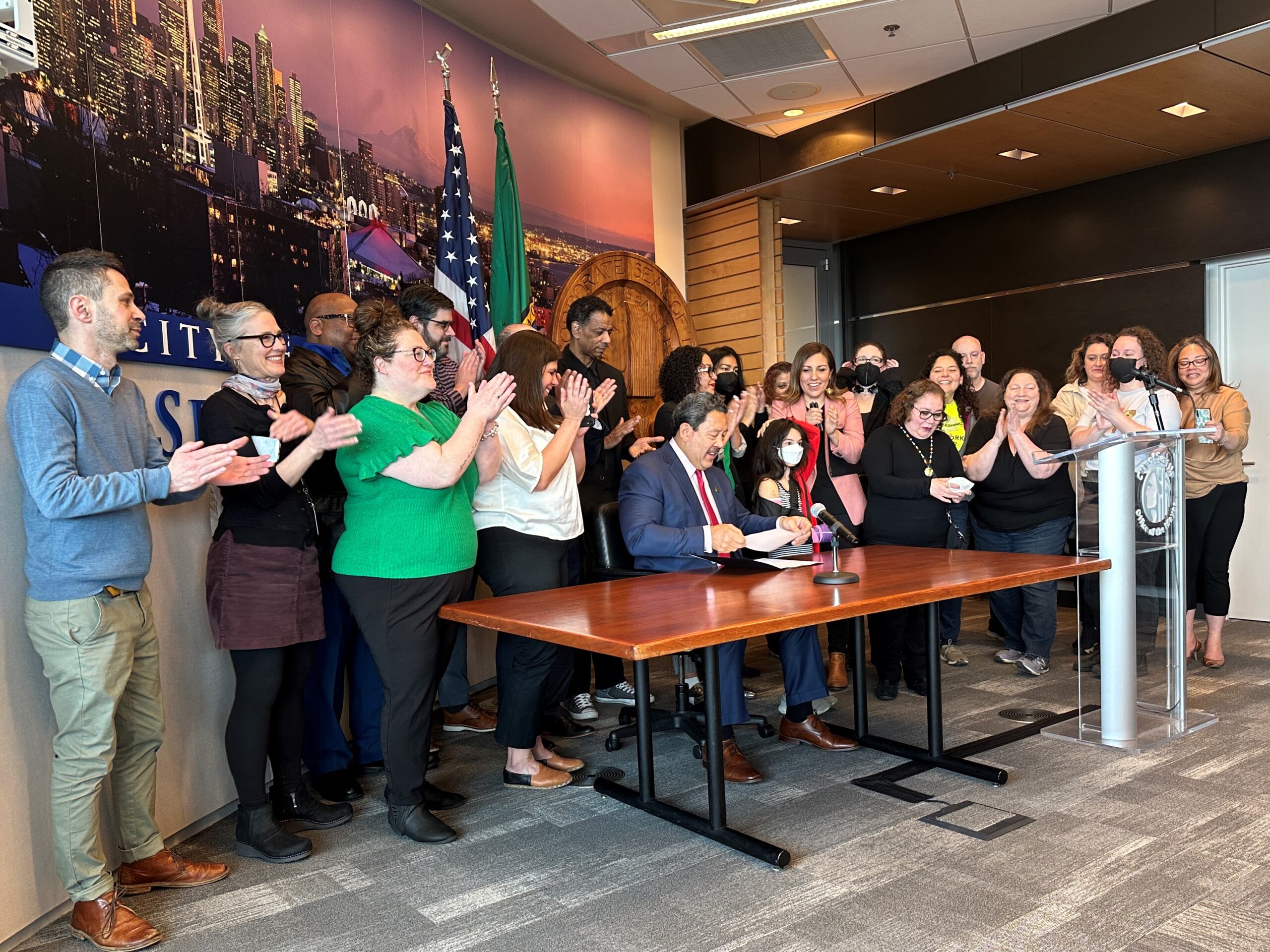
The New Law Also Expands Paid Sick Leave to More Types of App-Based Workers
SEATTLE – Today, Seattle Mayor Bruce Harrell signed into law new permanent paid sick and safe time (PSST) benefits for app-based workers. He was joined by Councilmember Teresa Mosqueda, who sponsored the legislation.
The City Council passed Council Bill 120514 by a unanimous 9-0 vote on Tuesday, making Seattle the first jurisdiction in the country to create these types of benefits on a permanent basis for gig workers.
WATCH: Mayor signs paid sick & safe time bill for app-based workers
This legislation builds on past historic efforts to extend paid sick and safe leave for more workers in Seattle at the beginning of the COVID-19 pandemic. In the spring of 2020, the City required Paid Sick and Safe Time to be extended to app-based workers, specifically food delivery drivers and workers using ride-sharing apps, as a guaranteed public health protection during the pandemic. The legislation allowed app-based workers the ability to accrue paid leave to care for themselves or a family member’s health, go to doctor’s appointments, recover at home without losing a day’s pay, take care of their children in the event of a school closure, etc. However, this was a temporary measure and was set to expire six months after the declared state of emergency ended, which would be next month on April 30, 2023.
The legislation, a joint effort by Mayor Bruce Harrell and Councilmember Teresa Mosqueda, ensures that these benefits are not only here to stay, but the new law also expands coverage to more app-based workers, not just food delivery drivers.
The bill applies to companies with 250 or more app-based workers worldwide. Transportation network companies like Uber and Lyft are already covered by statewide sick leave protections under ESHB 2076, which also preempts action at the local level.
Under the new law, workers will accrue one day of sick leave for every 30 days worked on the app that includes stops in Seattle. While taking leave, workers’ pay is based on their average daily compensation, and time can be used in day-long increments.
Companies affected by the legislation will create accessible systems so that app-based workers can check and request to use their Paid Sick and Safe Time.
The law goes into effect on May 1, 2023 for food delivery companies, ensuring that those workers will experience continued coverage. Paid sick and safe time benefits will be available to the other app-based workers covered in the legislation on January 13, 2024.
WHAT PEOPLE ARE SAYING
Mayor Bruce Harrell
“A healthy workforce leads to a healthy community, and no one should have to choose between taking a sick day to care for themselves – or their families – and making rent. Gig workers stepped up to serve our city during the pandemic and are an essential part of our workforce and economy, and this important legislation ensures the rights of our app-based workers remain protected. I want to thank the City staff, labor advocates, and app-based workers for their collaboration and partnership to make this crucial policy that supports the health and safety of our entire community permanent.”
Councilmember Teresa Mosqueda
“We want to ensure everyone has the time to get well, recover, and help members of their family when they’re ill – whether you deliver dinner, drop off laundry, or provide any service on these apps. Workers shouldn’t have to choose between staying home to care for themselves or their loved ones and losing a day’s income. Now if you feel sick, you can stay home and recover knowing you will still have your day’s wages to put food on the table or pay the mortgage. Paid sick and safe leave isn’t just the right thing to do for individuals, it’s also vitally important to protect public health. During the last three years of the pandemic, we’ve learned that a strong sick leave policy is vital for a healthy community and a healthy economy.”
Office of Labor Standards Director Steven Marchese
“Over the last two and a half years, the Office of Labor Standards (OLS) demonstrated the importance of providing temporary paid sick and safe time (PSST) to gig workers, resolving settlements that impacted nearly 21,000 workers and totaled nearly $5,800,000 dollars. We know that workers and the larger community benefit when they have the rights created by this ordinance and OLS has the tools to provide consistent community outreach and effective enforcement. We welcome the opportunity to expand our efforts to a broader range of workers so that more people can benefit from permanent PSST protection.”
Danielle Alvarado, Executive Director of Working Washington.
“Gig workers made today’s victory possible. By coming together to organize for fair pay, protection from retaliation, and now paid sick and safe time, workers have helped ensure Seattle is a place where all work is respected. Workers having access to sick time is not just the right thing to do – it’s the common sense approach to protecting public health that keeps our city moving. Making this policy permanent and expanding the workers who are covered by it is a huge step forward for us as a city. The gig economy is booming thanks to workers. We are proud that Seattle has recognized the importance of making sure gig workers can stay home when they are sick or need to take care of a loved one. When gig workers are protected, we all are. We thank Councilmember Mosqueda, the City Council and Mayor’s office for working together to ensure that workers will see no gap in their access to this critical basic right, and look forward to ensuring that marketplace companies are included next.”
Wei Lin, gig worker for Gopuff and member of the PayUp campaign
“As a gig worker, I have been speaking out in favor of permanent paid sick and safe time because it means that when there is a need to use my time for my and my family’s health and safety I know I have that covered and that means a lot. Gig workers in Seattle are facing serious trouble and permanent PSST would help us gig workers have some reliability to deal with the things that might come up in our lives. I appreciate what the Seattle’s city council has done to address this issue, so that I can be there for the people I care about.”

